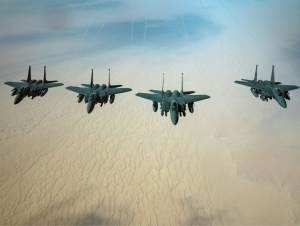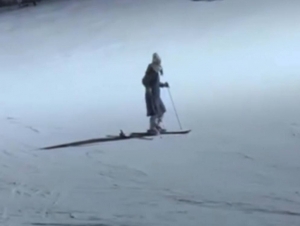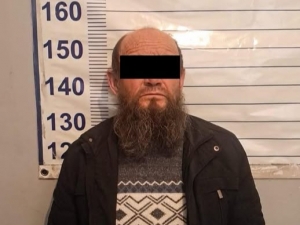Weekend of global shockwaves: Weapons, wounds, and words
Review
−
20 April 2025 8639 9 minutes
North Korean dictator Kim Jong-un is beating the drum of “shoot it while it’s still sleeping” under the pretext of Russia's invasion of Ukraine. It turns out he is making a lucrative business out of selling weapons and human resources.
Former US President Joe Biden has finally “resurrected.” This week, he made his first public appearance since leaving the presidency. Additionally, the elderly statesman, who often struggles to express himself fluently, is now offering paid lectures for $300,000 each.
Kyrgyzstan also doesn’t want to fall behind South Korea when it comes to holding presidents accountable. This time, the focus is on former President Atambayev, who is reportedly undergoing treatment in Spain.
Meanwhile, the latest victim of Israel’s siege on Gaza is an 11-month-old baby. The circumstances of his death are even more heart-wrenching. Ahmed, who was born just 11 months ago, died from hunger, dehydration, and a complete lack of medical aid due to the humanitarian blockade imposed by the Netanyahu government.
We will tell you more about this in this weekend’s QALAMPIR.UZ program.
The Brutal Victims of the Netanyahu Regime
Israel's aggression against the future and genetic continuity of Palestinians in Gaza is now taking one of its most horrifying forms. This week, an 11-month-old Palestinian baby from the Nuseirat refugee camp in central Gaza became the latest victim of the Netanyahu regime. There is no other word to describe what the government in Tel Aviv has become. According to Anadolu Agency, citing the Gaza Health Ministry, the baby, Uday Ahmed, died due to malnutrition and a lack of vital medicine. His mother, Esma Haidar, brought him to Al-Aqsa Hospital, where he passed away. Reports say that, like Uday, children are dying every day in Gaza from food and medicine shortages.
Esma, Uday’s mother, confirmed the dire conditions, citing hunger, destruction, and closed borders as daily realities, while also lamenting the complete absence of medication. She called on Arab nations to stop standing by and demanded immediate humanitarian aid and an end to the war.
Gaza Health Ministry head Muner Abdullah al-Barsh confirmed that Uday died due to starvation and lack of medical assistance. He emphasized that this tragedy was the direct result of Israel’s blockade of humanitarian aid and called for its immediate lifting.
The Netanyahu regime is unquestionably responsible for the tragic death of Uday, who had just begun to experience the world. Since March 2, Israel has fully blocked all humanitarian aid to Gaza, turning the territory into a hell on earth. Even the UN states that this period of siege has been the most severe since the conflict erupted on October 7, 2023.
We will not shy away from addressing what may be one of the most disgraceful genocides in human history, mainly targeting women and children in Gaza. The world-renowned World Press Photo competition recently awarded its top prize to a photo of a Palestinian boy who lost both arms. The photo, taken by Palestinian photographer Samar Abu al-Uf, features 9-year-old Mahmoud, who was injured in an Israeli airstrike in March 2023. After being evacuated to Qatar, Mahmoud received medical care and is now learning to use a phone, write, and even open doors with his foot. His biggest dream is to receive prosthetic arms.
Kim Jong-un: Shielding Himself While Profiting
It has been revealed that Kim Jong-un, who provided troops to Russia during its invasion of Ukraine, has also been supplying arms and ammunition. The Russian military is reportedly heavily dependent on artillery shells from North Korea. According to Reuters, North Korea provides half of the ammunition needed by Russian forces on average. Some Russian units are even said to rely entirely on North Korean supplies. In one example from summer 2023, a unit in the Zaporizhzhia region reported that half of its D-20 howitzer shells were North Korean, and some missiles used were 100% DPRK-made.
Between September 2023 and March 2024, North Korea shipped 16,000 containers of ammunition to Russia across 64 shipments, according to the Open Source Center. These containers traveled from the DPRK port of Rajin to Russian ports—East and Danube—via ships like the Angara, Maria, Maya-1, and Lady R, before being transported by rail to warehouses near the Ukrainian border.
Pyongyang also supplied Russia with long-range artillery, rocket launchers, and ballistic missiles. Ukrainian intelligence reports that North Korea delivered 120 long-range self-propelled artillery units, 120 fire control systems, and 148 ballistic missiles. Western analysts and Ukraine’s military confirm that North Korea’s contributions have given Russia artillery dominance, especially after the conflict entered a more static phase in late 2022. Ukraine's Defense Intelligence stated that, without North Korea’s support, Russia’s artillery strikes would have been cut in half.
Hugh Griffiths, former head of a UN panel monitoring North Korea sanctions, stated that Putin would not have been able to sustain the invasion without Kim Jong-un’s backing.
So what has Pyongyang gained by aligning so closely with Moscow despite its economic struggles? According to the South Korean Institute for Defense Analysis (KIDA), the DPRK has earned over $20 billion through arms exports to Russia. Most of this revenue came from ammunition sales. In addition to that, Pyongyang sent military personnel to Russia. Of the 11,000 North Korean soldiers deployed, 4,000 have died, primarily in the Kursk region.
Russia pays each North Korean soldier about $2,000 per month, plus a starting bonus, but the North Korean government seizes most of this money. KIDA estimates that the total value of Pyongyang's military sales—including artillery shells, grenade launchers, and ballistic missiles—amounts to $19.2 billion. Additionally, the regime made $280 million by deploying its soldiers. According to some reports, North Korea sent 21,000 containers by sea and may have also delivered supplies by land or air. In exchange, Russia provides technical assistance, including nuclear submarine technology and advanced fighter jets. These findings are supported by Reuters and the Open Source Center.
Biden’s “Resurrection”
On April 15, former US President Joe Biden made his first public appearance since leaving office. Speaking at the National Conference of People with Disabilities, Lawyers, and Counselors in Chicago, he sharply criticized Trump’s administration.
Although he didn’t mention Trump by name, Biden condemned the Social Security Administration cuts made under his administration, stating that 7,000 jobs were lost in the first three months. He also criticized the new administration’s “tech startup” mentality, targeting figures like Elon Musk indirectly. Biden argued that the new leadership is slashing social programs while offering tax breaks to billionaires.
He urged Americans to unite in opposition, saying the country has never been more polarized. Despite age-related concerns about his mental sharpness, his remarks on national division struck a chord. Political analysts across the globe are echoing similar concerns about the United States’ deepening internal divisions under far-right leadership.
In addition to his political reappearance, Biden is now offering paid speeches at $300,000 per event. However, finding clients willing to pay that price is proving difficult. Biden also demands additional costs—private jet, travel expenses, and a five-person team. Interestingly, his fee is only slightly lower than Barack Obama’s, who charged $400,000 after leaving office in 2017. So far, Biden has had to give speeches for free, such as his recent appearance at Harvard, which was organized by his longtime aide Mike Donilon. According to a university representative, Biden was not paid for the visit.
Another Presidential Scandal in Kyrgyzstan
Kyrgyzstan has long been overlooked as a nation where presidents often face grim fates after leaving office. But that perception is changing. The latest target is former President Almazbek Atambayev, currently in Spain for medical treatment.
Atambayev, who ruled from 2011 to 2017, was tried in absentia this week. The prosecution is seeking an 11-year sentence. Others, including former State Committee officer Qanat Sagimboyev, face similar charges. Three others—former MP Ravshan Jeenbekov, Atambayev’s party colleague Farhod Baabiyev, and former chief of staff Farid Niyazov—face 10-year sentences.
The charges stem from clashes in August 2019 in the village of Koytash, where security forces attempted to arrest Atambayev. The attempt sparked violent resistance from his supporters, resulting in 136 injuries and the death of one special forces officer.
Additional charges include corruption, money laundering, illegal passport issuance, and organizing riots in October 2020. While Atambayev was convicted of the illegal release of mafia boss Aziz Batukayev in 2013, the statute of limitations prevented sentencing. Atambayev has already served 3.5 years in prison following a 2020 conviction but was released in February 2023 for medical reasons. He has since been living in Spain, where he was last seen with his son on the Barcelona subway.
During his presidency, Atambayev enjoyed positive evaluations. George Soros once praised Kyrgyzstan for having a “corruption-free president,” while Putin described him as “a man of his word.”
Putin’s Brief Easter Truce
On April 19, Russian President Vladimir Putin declared a short ceasefire in honor of Easter. At a Kremlin meeting, he ordered military operations to pause from 6:00 p.m. on April 19 to midnight on April 21. He said the Ukrainian side was expected to reciprocate.
Putin used the moment to question Kyiv’s willingness to honor agreements. He also congratulated Christian soldiers on the holiday.
Easter is Christianity’s most significant religious celebration, symbolizing the resurrection of Jesus Christ. It is observed on the first Sunday after the full moon following the spring equinox, which this year fell on April 20.
However, Ukrainian President Volodymyr Zelensky rejected Putin’s gesture, saying that shelling continued across the front lines, including in Kursk and Belgorod. According to a report from Ukrainian Commander-in-Chief Sirsky, by 6:00 a.m. on April 20, Russian forces had already carried out 59 artillery attacks and five offensive operations.
Live
All



